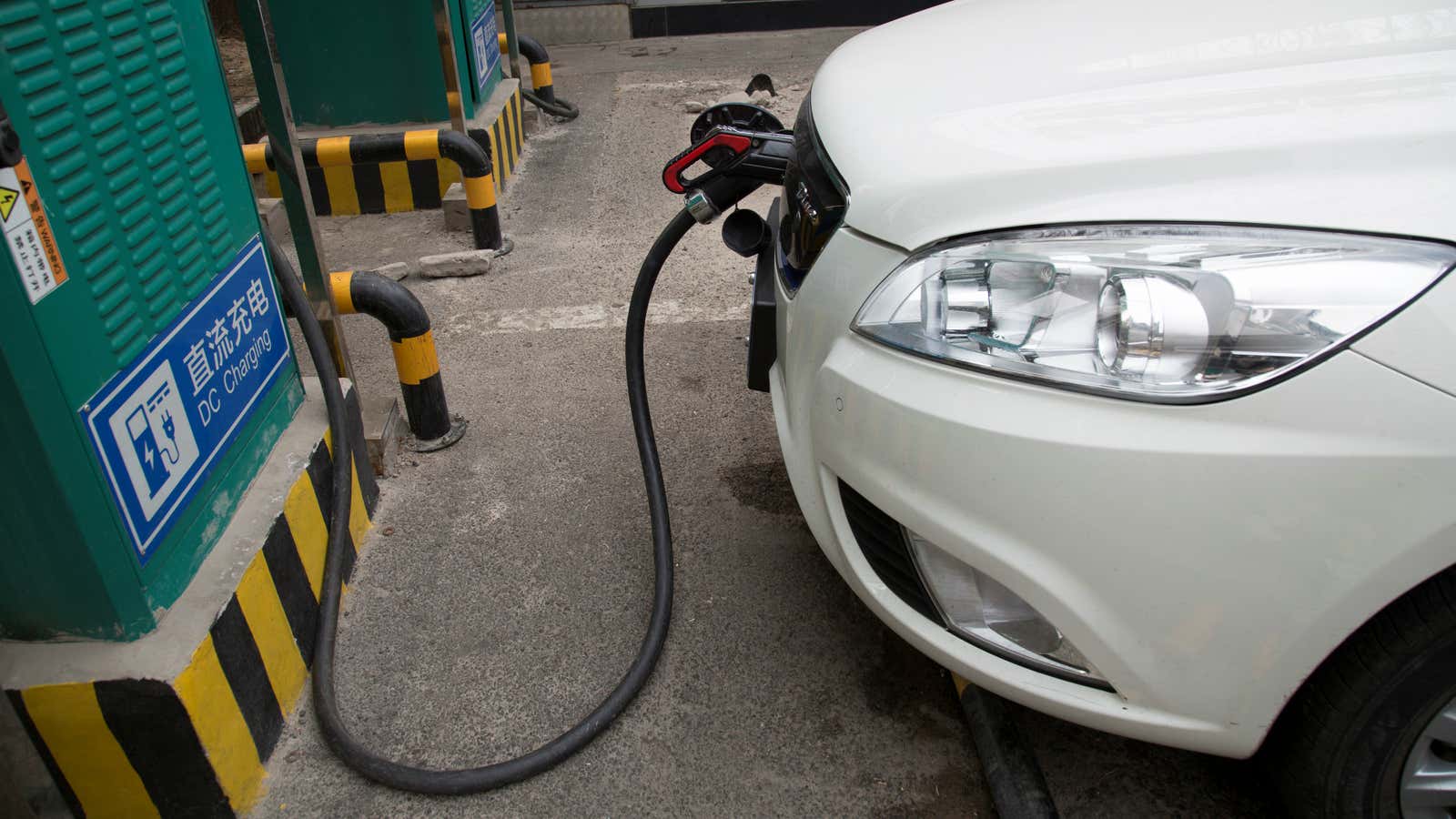For years, the Chinese government has fostered a booming electric-vehicle industry. By providing buyers with tax incentives and bureaucratic perks, and producers with funding and tax breaks, the country has become the world’s largest market for EVs. Plenty of upstart companies have entered the market, hoping to take advantage of the favorable policies and sell to the burgeoning consumer market.
Meanwhile, this week, Beijing announced it would remove one of the most onerous restrictions preventing foreign automakers from producing and selling EVs in China on their own.
What does this mean for China’s homegrown electric-car makers? A tougher environment than they bargained for, says one industry executive who expects to see consolidation in the near future.
Speaking at the Wall Street Journal’s D.Live event in Hong Kong, Brian Gu, vice chairman of Guangzhou-based Xiaopeng Motors, argued that many Chinese EV companies entered the industry primarily to make use of the government funds and programs.
“Almost every local government I talk to says, ‘Please come, I’ll give you land, money, tax credit, please build a plant in our city,'” said Gu. ”Because there’s so much attention, so much money and funding available, that also attracts people who want to, for the purpose of getting that subsidy or funding, to get into this business.”
But competition will intensify now that players from outside China can more easily enter the market. Beijing has announced that foreign makers of fully electric and hybrid cars can now make vehicles in the country without first forming a joint venture with a domestic counterpart (the same will apply to makers of standard vehicles by 2022). This will allow companies like Tesla to compete independently and more equally with Chinese rivals.
“The time window for companies to really establish their presence in this marketplace is probably three to five years now. In the past, I think because of the ownership limitations, you could see yourself having five years or longer runway to build that business,” Gu said. “Only the players that have those three years to establish their own brand, own network, own product lines, will be able to compete.”
Xiaopeng Motors is one of several Chinese EV players with ties to the country’s tech industry. Backed by e-commerce giant Alibaba and iPhone assembler Foxconn, the company is currently raising a $1.6 billion funding round and plans to launch pre-sales for its first commercial model later this month. Its domestic rivals include Baidu-backed WM Motors, Tencent-backed NIO, Volvo parent-company Geely, Warren Buffet-backed BYD, and several of China’s state-owned traditional carmakers.




